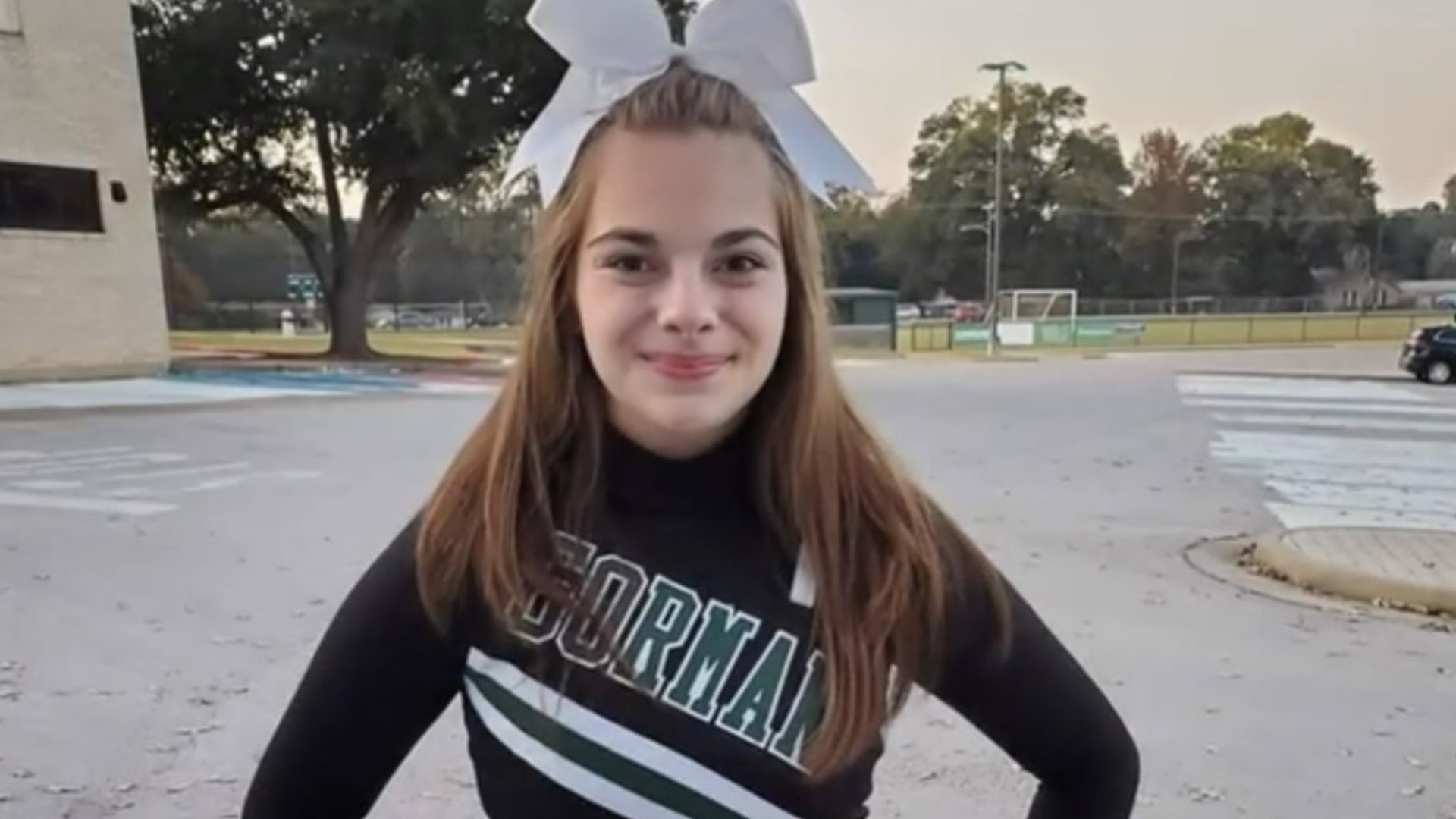TYLER, Texas — Addison Bockover doesn't take her good days for granted.
"A good day means I'm not as sensitive," she explained. "Every day is kind of different; I feel tingling with every noise and it's physically painful, but today I'm not as sensitive."
As a junior in high school, Addison never imagined her health would hold her back from doing what she loves the most: sports.
"She was a softball player since she was 7," Addison's mom Lori Bockover said. "She's played on travel leagues, local leagues. She loves softball. I mean… she was a healthy kid… brain was great."
Addison's athletic ability and talent got her noticed by the cheer coach who tapped her to try out for the team.
"She was always making it exciting to be a cheerleader," Addison added. "So when there were a few girls out, she came to me for that opportunity."
Addison jumped at the chance, tried out and made the team.
"I really enjoyed it. I loved football games and pep rallies," Addison said.
Then things flipped. Addison's excitement was quickly sidelined after suffering from multiple concussions.
"A girl fell on me and hit my head that was first concussion," Addison explained. "The second concussion, same exact thing happened. Same situation and then the third.
"The third we were doing a dance for a pep rally and we were told to kind of throw ourselves back on the ground and I hit another girl's head," she said. "I blacked out for a few seconds."
Addison said she suffered three concussions from cheerleading in a span of a year. But after her third and final concussion, Addison started to have seizures. She flew to Littleton, Colorado to see Dr. Shaun Kornfeld, a functional neurology practitioner, at the Plasticity Center.
"We were seeing difficulties with her balance, difficulties with her eye tracking and difficulties with getting enough an appropriate amount of blood flow to the brain," Kornfeld explained.
Kornfeld performed laser therapy on Addison to help increase the blood flow to her brain.
"We've seen a significant decrease in the prevalence of her seizure activity," Kornfeld added. "She was going from about 100 a day. The symptoms that Allison is experiencing falls in line with a lot of the athletes that we've seen those are amateur athletes as well as professional athletes."
In the professional world of cheerleading, the glitz and glam of high kicks, stunts and flips can overshadow the high risk of severe head injuries.
The cheer coaches at Trinity Valley Community College know that risk all too well. They stress the importance of taking proper protocols after suffering from a concussion.
"I was fine, like doing some type of basket thing and I just came down on someone's shoulder," TVCC Coach Molly McLeod said. "So I got caught and everything. It was just the way that I got hit my head. I started that whole protocol probably like three weeks for me to actually start doing anything cheerleading related."
Coach Vontae Johnson, who comes from a football background, said he takes cheerleader injuries just as seriously as he did when he was playing football.
"Both are very dangerous, you know, could be very dangerous if not done right," Johnson said. "Both are demanding sports and accidents happen."
The National Center for Catastrophic Sport Injury Research reports for both high school and college athletes. The number of female cheerleaders' direct catastrophic injuries was second only to football players. However, according to the Orthopedic Journal of Sports Medicine, concussions make up 96% of cheer injuries.
"If I ever had another concussion, my brain would not be able to function there," Addison added. "It would be extremely dangerous for me to play. I was heartbroken. I was angry that this happened to me. Especially as young as I am."
Addison was on the cheer squad at Bishop Thomas K. Gorman Catholic School when these injuries happened. The school declined an interview to discuss Addison's injuries but said in a statement quote, "our faculty coaches and staff are fully committed to the safety of our students and to following all protocols."
Although Addison's daily seizures are down significantly, she's currently being home schooled.
"If I feel a tingling in my back or something I have to watch out for that because that means the seizures coming on," Addison explained.
Addison wants to use her voice to rally for something important.
"(Concussions) happen in all sports all levels. It's really important to report them, and that's really important for you to take seriously," Addison said.
The community has created a GoFundMe page to help with Addison's medical expenses.
The Centers for Disease Control and Prevention has protocols surrounding concussions in all sports, click here to lean more.

